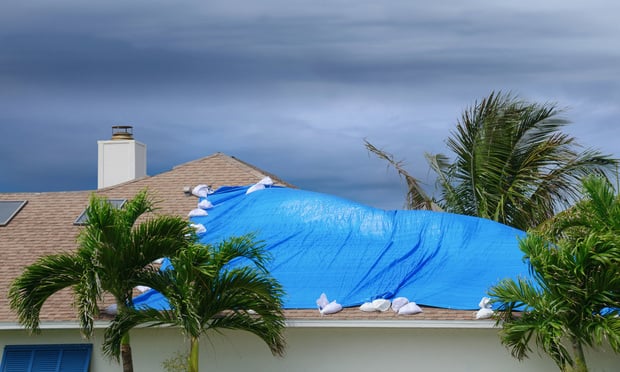 "Homeowners need to be more responsible for fraud and material misrepresentation during the claims process," said Austin Flickstein, a principal at Bressler, Amery & Ross's insurance practice. "Right now, there is a lot of leeway for a homeowner to say they aren't an expert. If it were codified in law that homeowners are responsible if they let the roofer submit something inflated or inaccurate, it would cut down on (fraudulent claims)." (Credit: Michael O'Keene/Adobe Stock)
"Homeowners need to be more responsible for fraud and material misrepresentation during the claims process," said Austin Flickstein, a principal at Bressler, Amery & Ross's insurance practice. "Right now, there is a lot of leeway for a homeowner to say they aren't an expert. If it were codified in law that homeowners are responsible if they let the roofer submit something inflated or inaccurate, it would cut down on (fraudulent claims)." (Credit: Michael O'Keene/Adobe Stock)
Florida is nicknamed The Sunshine State, but exactly how bright that sun shines may depend on who you ask.
Recommended For You
Want to continue reading?
Become a Free PropertyCasualty360 Digital Reader
Your access to unlimited PropertyCasualty360 content isn’t changing.
Once you are an ALM digital member, you’ll receive:
- Breaking insurance news and analysis, on-site and via our newsletters and custom alerts
- Weekly Insurance Speak podcast featuring exclusive interviews with industry leaders
- Educational webcasts, white papers, and ebooks from industry thought leaders
- Critical converage of the employee benefits and financial advisory markets on our other ALM sites, BenefitsPRO and ThinkAdvisor
Already have an account? Sign In Now
© Touchpoint Markets, All Rights Reserved. Request academic re-use from www.copyright.com. All other uses, submit a request to [email protected]. For more inforrmation visit Asset & Logo Licensing.







